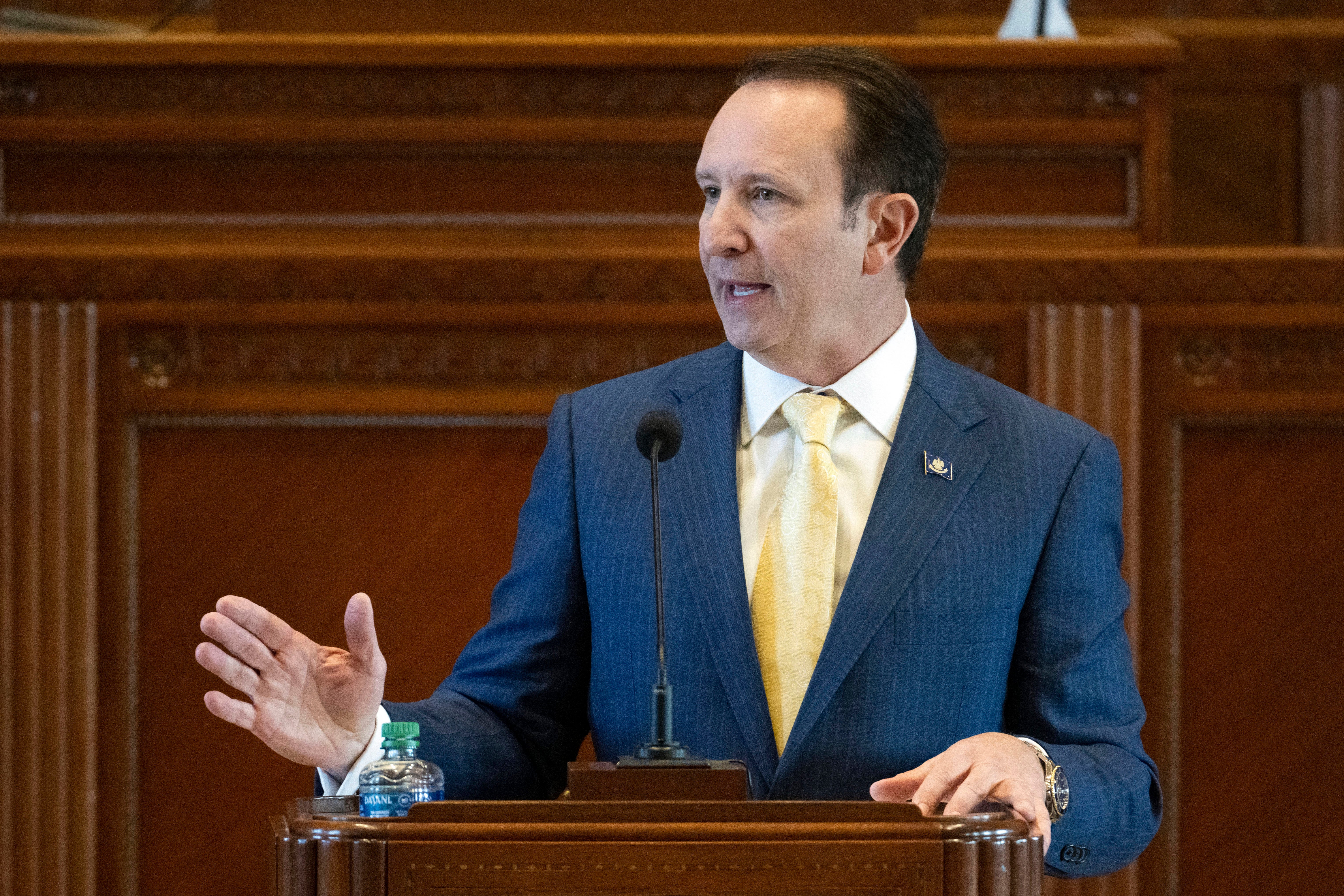Louisiana governor signs law classifying two abortion drugs controlled and dangerous substances
Jeff Landry inked a first-of-its-kind bill which impacts the drugs mifepristone and misoprostol
Louisiana’s Republican governor Jeff Landy has signed a first-in-the-country law that classifies two abortion-inducing drugs as controlled and dangerous substances.
Mr Landry announced his signing of the bill in Baton Rouge on Friday, just a day after it gained final legislative passage in the state Senate.
The measure affects the drugs mifepristone and misoprostol, which are used in medication abortions, the most common method of abortion in the US.
“Requiring an abortion inducing drug to be obtained with a prescription and criminalizing the use of an abortion drug on an unsuspecting mother is nothing short of common sense,” Mr Landry said in a statement posted on X.
“This bill protects women across Louisiana and I was proud to sign this bill into law today.”
Opponents of the bill included many physicians who said the drugs have other critical reproductive health care uses, and that changing the classification could make it harder to prescribe the medications.
Supporters of the bill said it would protect expectant mothers from coerced abortions, though they cited only one example of that happening, in the state of Texas.
The bill passed as abortion opponents await a final decision from the U.S. Supreme Court on an effort to restrict access to mifepristone.
The new law will take effect on Oct. 1.
The bill began as a measure to create the crime of “coerced criminal abortion by means of fraud.” An amendment adding the abortion drugs to the Schedule IV classification of Louisiana's Uniform Controlled Dangerous Substances Law was pushed by Sen. Thomas Pressly, a Republican from Shreveport and the main sponsor of the bill.

“Requiring an abortion inducing drug to be obtained with a prescription and criminalizing the use of an abortion drug on an unsuspecting mother is nothing short of common-sense," Landry said in a statement.
Current Louisiana law already requires a prescription for both drugs and makes it a crime to use them to induce an abortion, in most cases. The bill would make it harder to obtain the pills. Other Schedule IV drugs include the opioid tramadol and a group of depressants known as benzodiazepines.
Knowingly possessing the drugs without a valid prescription would carry a punishment including hefty fines and jail time. Language in the bill appears to carve out protections for pregnant women who obtain the drug without a prescription for their own consumption.
The classification would require doctors to have a specific license to prescribe the drugs, and the drugs would have to be stored in certain facilities that in some cases could end up being located far from rural clinics.
In addition to inducing abortions, mifepristone and misoprostol have other common uses, such as treating miscarriages, inducing labor and stopping hemorrhaging.
More than 200 doctors in the state signed a letter to lawmakers warning that the measure could produce a “barrier to physicians’ ease of prescribing appropriate treatment” and cause unnecessary fear and confusion among both patients and doctors. The physicians warn that any delay to obtaining the drugs could lead to worsening outcomes in a state that has one of the highest maternal mortality rates in the country.
Pressly said he pushed the legislation because of what happened to his sister Catherine Herring, of Texas. In 2022, Herring’s husband slipped her seven misoprostol pills in an effort to induce an abortion without her knowledge or consent.
The Associated Press contributed to this report.
Bookmark popover
Removed from bookmarks